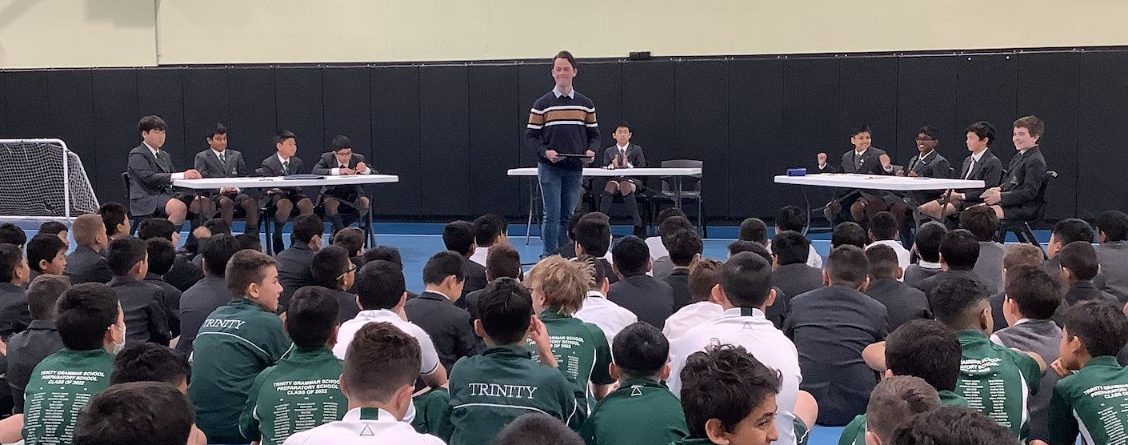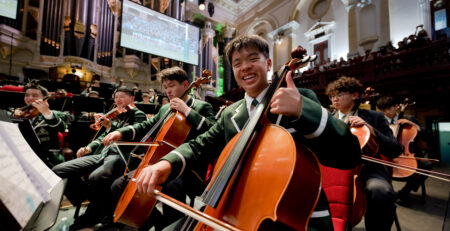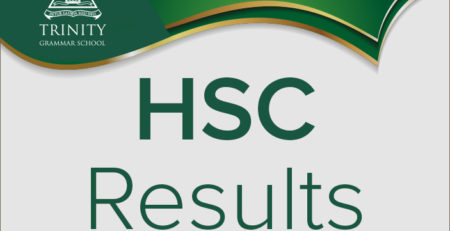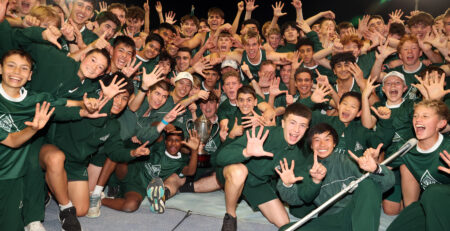House Debating Finals | Preparatory School
The final debate was between School and Archer Houses with the topic ‘That mobile phones should be banned at school’. School house debated the Affirmative and Archer debated the Negative.
Aarav
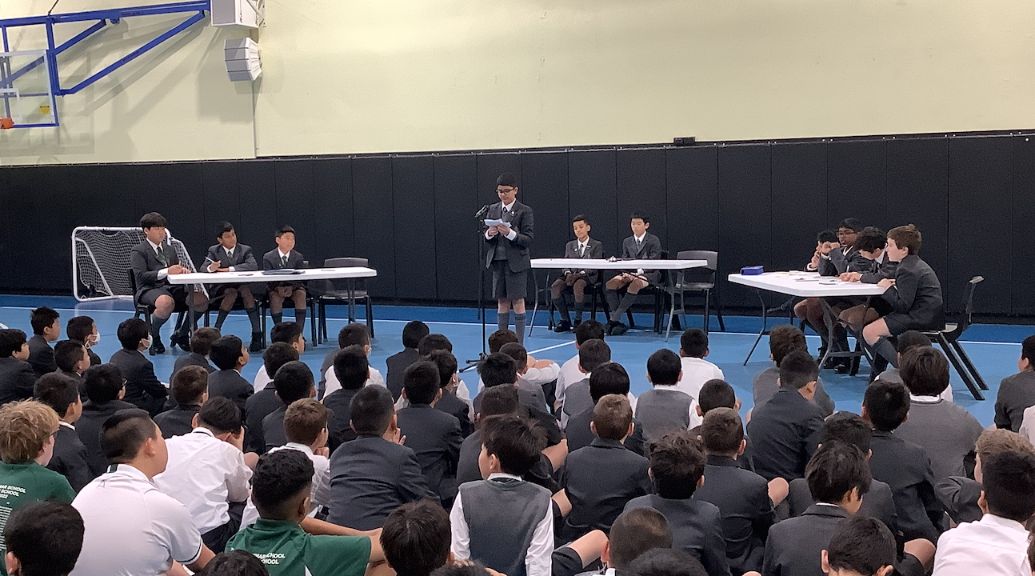
To start the debate for the affirmative team Aarav stated that without mobile phones we can have happier lives that include spending time with family and friends or more time enjoying sports. Aarav then brought out a statistic stating that 52% of teenagers sit next to their friends not communicating with each other but on their phones, which is bad for communicating with others around you. His first point was that phones in school are distractions to the students and can stop them from focusing on their studies and schoolwork. He then stated Harvard university has stated that ADHD symptoms have increased by 10% in students due to looking at screens too much and having bad attention spans. He then brought up another statistic stating that 65% of teenage students bring their phones to school every day and that if students stop bringing their phones to school brain power would increase by 6.4% which helps over half of the school and the students’ education.
Panav
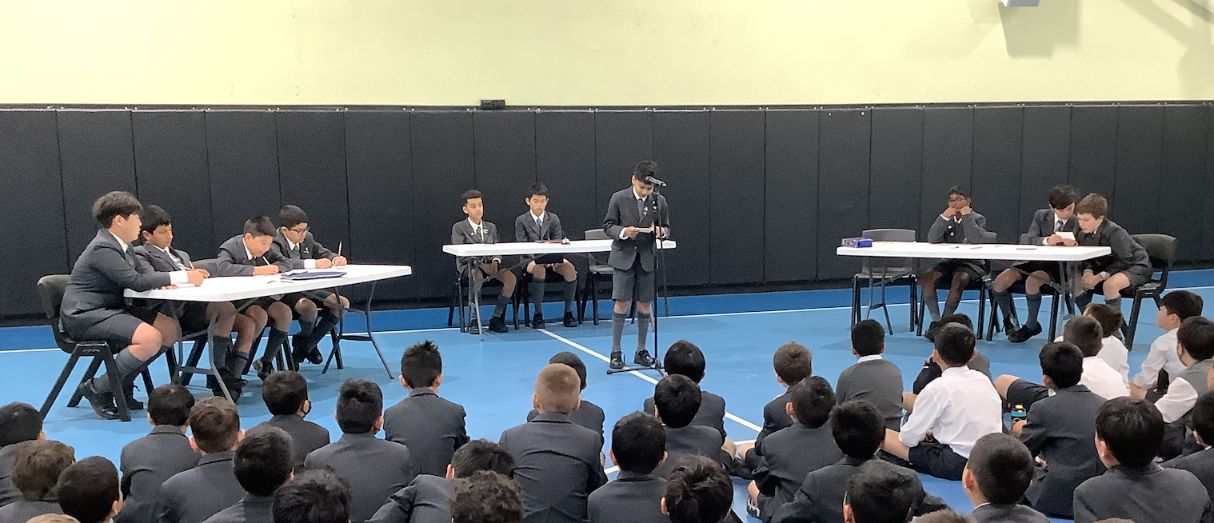
The Negative first speaker has disagreed with the model of the affirmative and created a counter model; that all schools in Australia should have an ICT agreement like our School. The team stated that a mobile phone isn’t just a device used to communicate, but it can provide apps and other types of resources such as a dictionary and providing assignments. Panav introduced a point of an emergency occurring in school grounds. He stated that mobile phones allow access to unlimited and easy information and that they contribute to schools going paperless and virtual, allowing to save time, money and the planet. Panav has also stated that the average school produces 2000 pieces of paper every day and across one school year the average school produces 300,000 pieces of paper every year which can be stopped if people start using electronic devices such as phones to do assignments and other non-paperwork. He also stated that 46% of students use their mobile phones for schoolwork already.
August
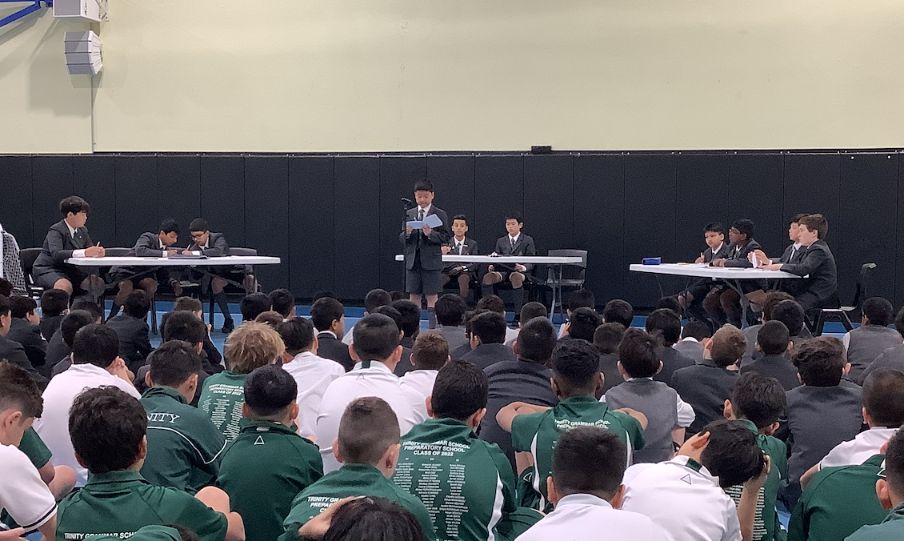
To continue the debate the second affirmative, August, rebutted Panav’s points stating that phones are not good for learning due to the fact that they are not monitored and can’t be controlled by the School which can cause issues of inappropriate accessibility. A school device such as a laptop can be supervised by apps like Hapara which stop the inappropriate websites or information and are supervised by a teacher meaning that the school devices are safer and better. August’s point brought up the mental and physical damage that mobile phones expose, bringing up a statistic that 90% of parents say that their children are more aggressive after being on a phone and that staring at the screen too long can cause neck strains, eye pain and addiction. August also stated that 54% of students in high school chat to friends on phones, 52% of them use social media and 53% of them have owned up to using a device to cheat on a test which is terrible for schools.
Jayshan
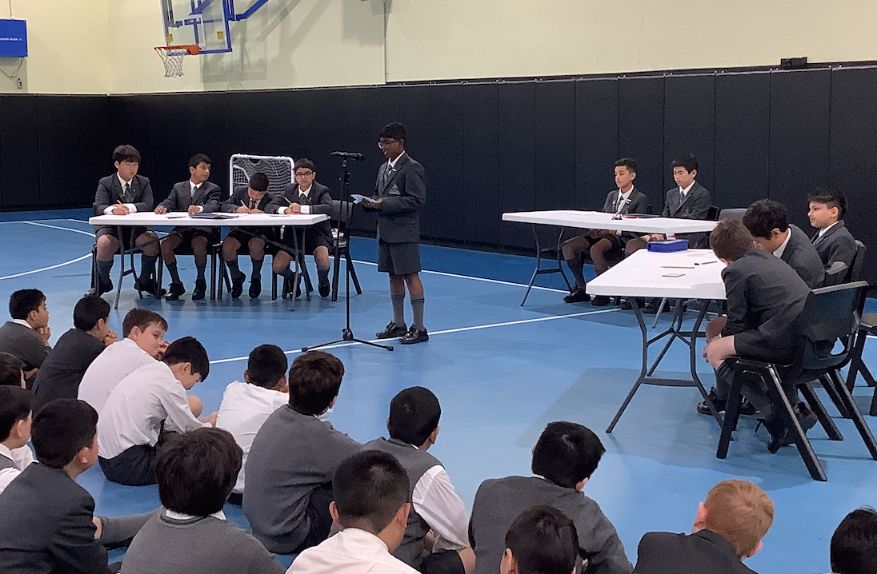
To continue the debate for the Negative team, Jayshan rebutted August’s points by stating that if phones are so bad and expose inappropriate things then parents or guardians should add restrictions. He has also stated that banning often isn’t a great approach, but persuading people can have better outcomes. His points were that evidence from Samsung has proven that the technology in their phone’s was more advanced than Nasa spaceships and shuttles such as one that is currently on Mars. This advanced technology can help students with their learning. He has also stated that during the current era, phones and screens are popular to students and we can relate to them by connecting to their interests, making learning easier.
Veer
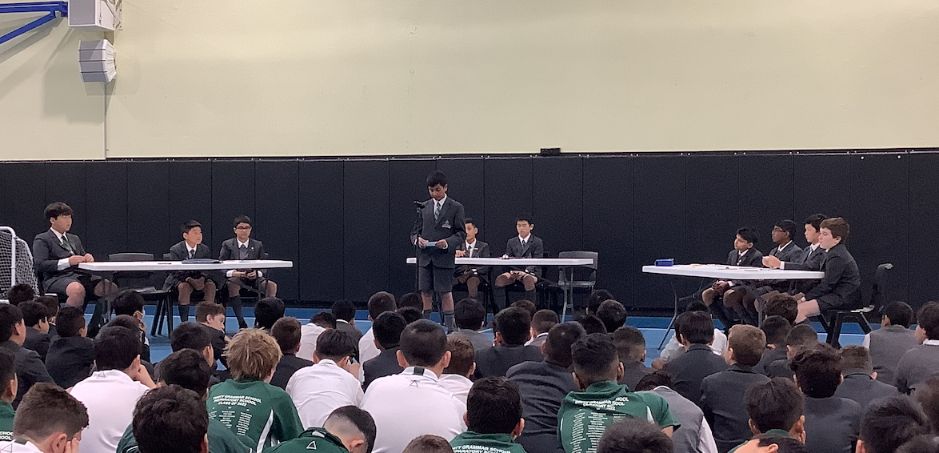
To conclude the debate for the affirmative team, Veer stated that if students bring phones to school, they will not be able to socialize as well as they could due to the distraction and addiction that comes with them.
Veer has also brought up that if we spend too much time on screens, we can lose simple things like attention spans, eye contact, basic manners and could weaken communication skills. As well as this Veer stated that when we spend too much time on screens, we can find it troubling to sleep which can lead to aggression.
Julian
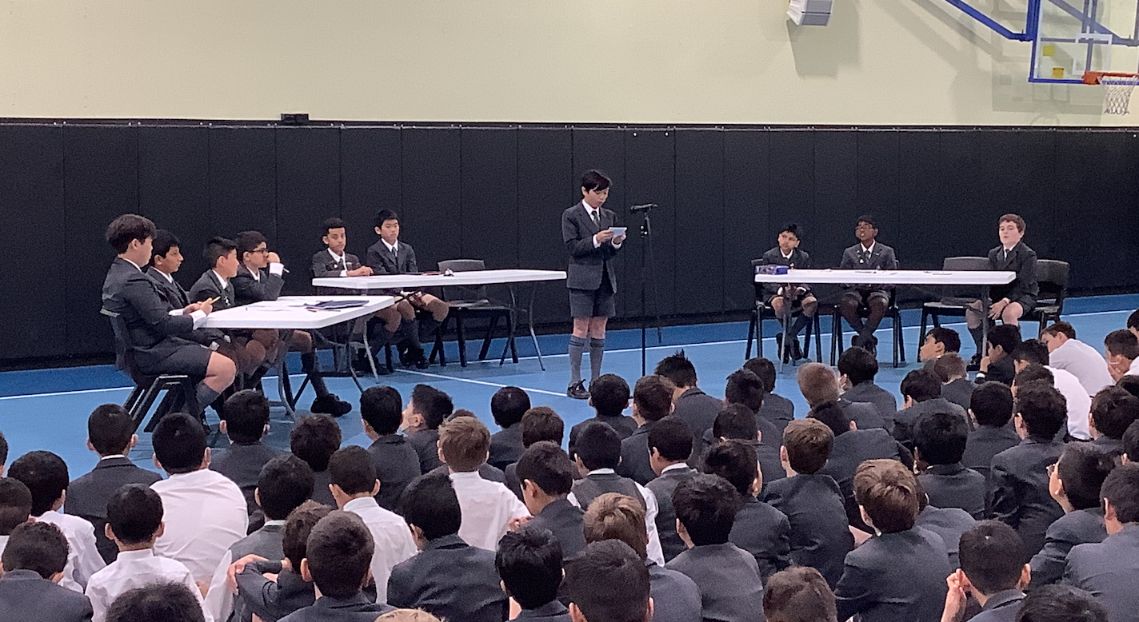
To conclude the debate for the Negative team Julian highlighted a rebuttal stating that ICT agreements have been put in place to stop distractions in schools and that if students use phones incorrectly, they will be confiscated. He has also stated that in schools we use iPads which are similar to phones and not many problems have occurred during this time. He has also stated that in online games, losing doesn’t cause more anger or frustration than losing in a regular game such as cricket, soccer or basketball.
At the end of the debate, Mr McManus gave his adjudication where he outlined the key arguments that both teams won. In the end Archer took the lead and won the House Debating Tournament and finally the team advisors gave their thanks to conclude the debate between the Houses.
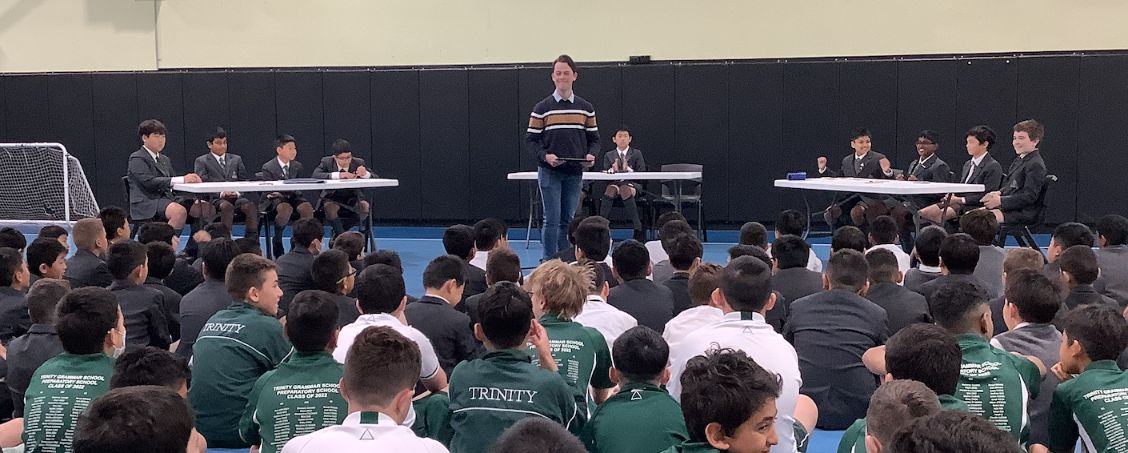
Ethan Koh | Debating Captain & Domenic Alvaro

